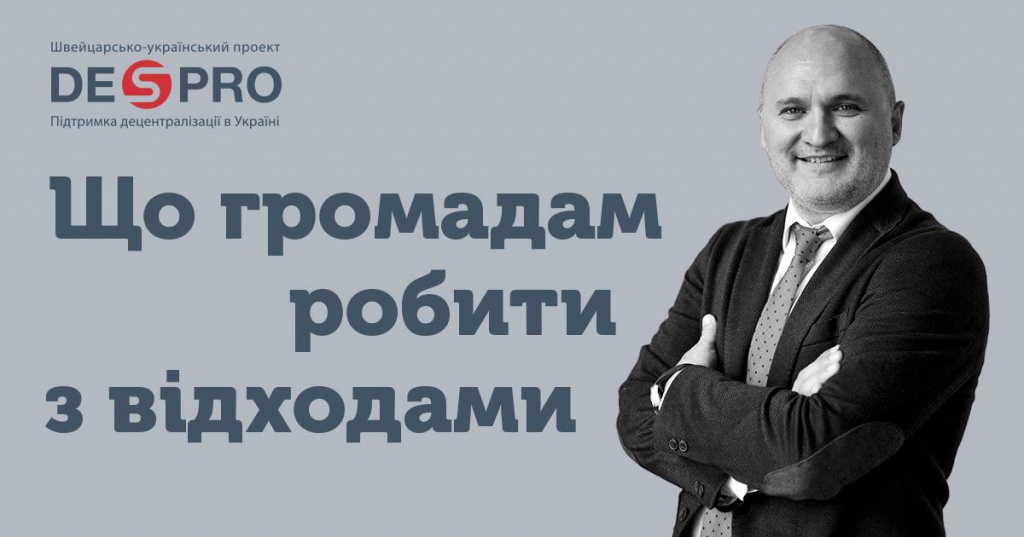What should hromadas do with waste?
The need for waste management reform in Ukraine has been growing since the Soviet era, since there was no such management, but only endless areas to dump the garbage.
Currently, Ukraine has adopted a National Waste Management Strategy until 2030, according to which a new system of distribution of responsibility between a citizen, producer and authorities, in particular local self-government, will be established at the legislative level.

Sorting waste
Both the final consumer and the producer can prevent waste formation. As a rule, the producer makes this work more efficiently, since the choice of environmentally friendly materials and the way of packaging or residual products after consumer use should be considered at the very production stage
How can producers be encouraged? To do this, there are mechanisms for extended producer responsibility (EPR), which foresees the responsibility of the manufacturer for the processing and disposal of their products after consumption.
When will waste sorting become massive?
Today 3-4% of waste is sorted and processed.
Separate collection is an additional expense, which today is mainly passed on to the shoulders of local self-government.
On the other hand, the population, in fact, is not interested in sorting waste. The tariff is calculated according to the rate of waste generation. It is approximately 300 kg per person per year. Although local self-government bodies can set their own standards. Normally, all waste is included, including that of resource value. Thus, the simple reaction of an average person is: I pay you a tariff, and you do whatever you want with the waste.
Can a sorting line change the situation?
The sorting line, like the entire waste management system, is sensitive to scale. If the amount of waste is insignificant, operating and investment costs will not in any way cover them, and over time, underloaded sorting lines can be a significant burden for hromadas.
There is another issue connected with specific types of waste such as batteries, fluorescent lamps or combined packaging. The market of this waste recycling is expected to develop in future, but today the only solution is to transport them for recycling to the EU countries.
What should hromadas do?
Let’s sum up our tips for hromadas:
1. Teach to sort waste
2. Find an entity to sell waste to
3. Agree with neighbours
The full version is available in Ukrainian – please click HERE
27 February 2026
4 березня – онлайн-лекція «Емоційний інтелект: як управляти емоціями?»
4 березня – онлайн-лекція «Емоційний інтелект:...
4 березня 2026 року о 14:30 відбудеться безоплатна онлайн-лекція «Емоційний інтелект: як управляти емоціями?» для...
27 February 2026
Language of Development Part 3: Institutions Behind EU Cohesion policy
Language of Development Part 3: Institutions...
“Language of development” is a shared voice of many — from key EU institutions to the governments of Member States,...
27 February 2026
Адміністрування податків громадами: Мінрозвитку запускає експеримент
Адміністрування податків громадами: Мінрозвитку...
Міністерство розвитку громад та територій ініціювало експериментальний проєкт, який дозволить територіальним громадам...
27 February 2026
Мінрозвитку підготував проєкт Постанови щодо...
Міністерство розвитку громад та територій України напрацювало проєкт Постанови Кабінету Міністрів «Про пріоритети...